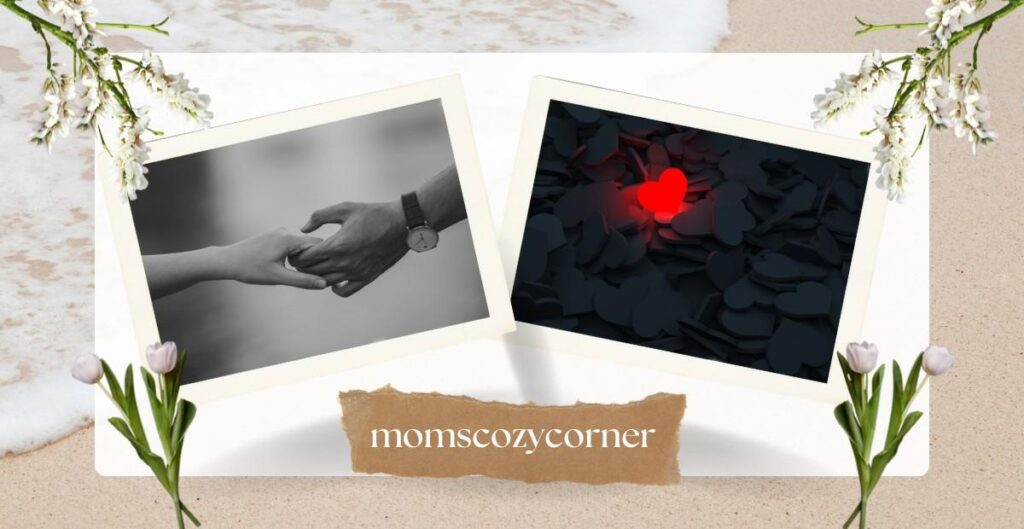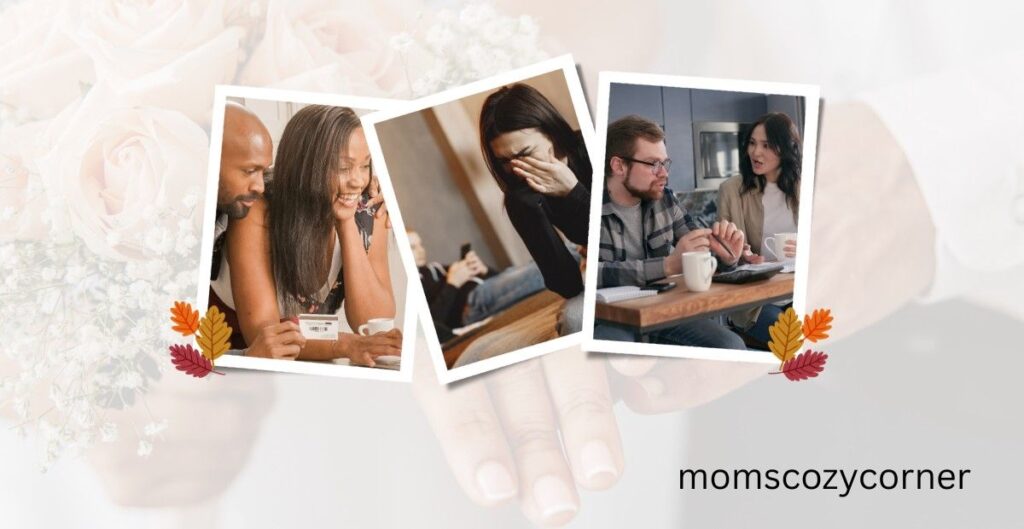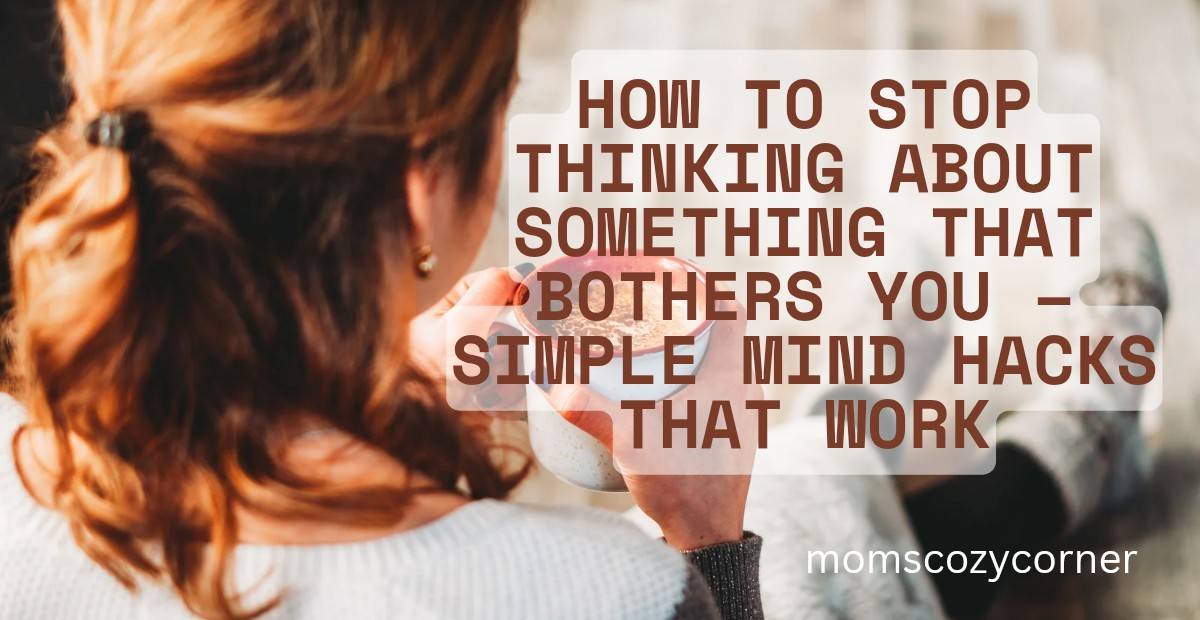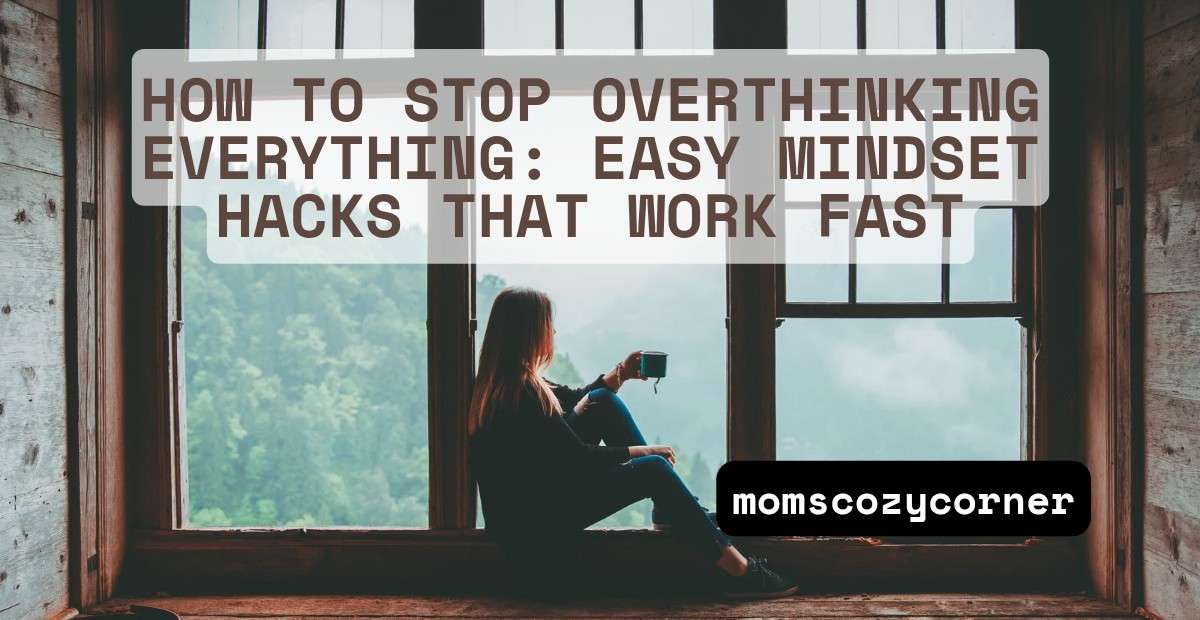Why Do I Lie to My Partner and Still Feel So Guilty After?
Introduction
Sometimes, we lie to our partners. And yes, mama, we’ve all done it. That’s probably why you’re here — wondering why those little fibs slip out, even when we love them. I’ve been there too. I’ve lied to my husband and instantly thought, Why did I do that? After some soul-searching (and mom guilt spirals), I realized there’s more to it than avoiding conflict. So let’s unpack it together – ‘why we lie to our partner?’ — mama to mama.

Why Do We Lie to Our Partners?
You know, there are so many reasons behind a lie — not just in relationships, but also in workplaces, with our parents, relatives, even our closest friends. But when I took time to really look at myself, to do a little self-analysis, I found some honest answers about why I lie to my partner sometimes.
It’s not always because I’m hiding something bad. Sometimes it’s love. Sometimes it’s fear. Sometimes it’s just to avoid one more argument at the end of a long day.
Every situation, every emotion — they all play a part. And while I can’t speak for everyone, I want to share a few of the reasons I’ve uncovered in my own journey. Maybe they’ll help you reflect on your own, or at least remind you — you’re not alone in this.
Guilt or Shame
You know, most days I make a conscious effort not to use my phone when I’m around my kids — especially when they’re climbing the sofa, jumping off furniture, or running wild around the house. I know I sound a bit overprotective, but I’d rather be “too much” than risk them getting hurt.
But one afternoon, I slipped.
I was sitting with them, watching them play, when an idea for a blog post hit me out of nowhere. Without even thinking, I pulled out my phone and started typing it up. I got completely sucked in. I was physically present, but mentally far away.
That’s when it happened — my younger daughter fell while climbing the railing. My heart dropped.
When my husband walked in and asked what happened, I told him she fell — but I didn’t mention that I’d been on my phone. Because here’s the thing: when he gets distracted by his phone while watching the kids and something goes wrong, I usually call him out. I blame him. I act like he’s irresponsible.
And now, here I was — guilty of the exact same thing. But I couldn’t bring myself to admit it. I felt ashamed. I didn’t want him to see me the way I’ve seen him in those moments. So, I lied. Or at least, I left the truth out.
Looking back, it wasn’t about the fall. It was about my ego. I wasn’t ready to own up to my mistake. The guilt was heavy, but the shame? Even heavier.
Fear of Conflict or Being Misunderstood
There’s another kind of lie — the one we tell just to avoid a fight. I’ve been there too.
My husband doesn’t like one of my closest friends. He thinks she gives me bad advice, especially when we fight. So anytime her name comes up, it turns into a debate — and honestly, it’s exhausting.
One day, while he was out meeting a client and both kids were at school, she called me saying she needed to talk in person — urgently. I asked her to just tell me over the phone, but she insisted.
So, I went to meet her at the grocery market, hoping I’d be back before anyone noticed. I didn’t even tell my mother-in-law the truth — just said I was going out for some grocery shopping.
Right then, my husband called.
He heard the market sounds in the background and asked where I was. I told him I was shopping — which technically wasn’t a total lie, but… yeah, it was. He said he’d pick me up on his way home. I quickly asked my friend to leave or hide before he got there.
Even now, he doesn’t know I met her that day.
Why did I lie to my partner? Because I knew what would follow. He’d bring up her name in the next argument. He’d say she’s the reason we clash. He might even suggest that our relationship can’t survive if I keep spending time with her. I didn’t want to deal with that — not that evening, not for the next two days.
So I stayed quiet. I lied to keep the peace.
Avoiding Judgment or Nagging
I’ve always believed in building multiple income streams. Lately, I’ve been studying the stock market and learning how to invest. It’s something I’m genuinely interested in — a way to grow financially and feel more independent.
But my husband doesn’t share that view. He thinks the share market is a sure-shot way to lose money. So when he gave me ₹10,000 (about $120) to keep for emergencies, I made a decision I didn’t tell him about — and talking to your spouse about money isn’t always as easy as it sounds.
I split the money across two or three stocks I had been researching. I genuinely believed they’d bring good returns in time. I didn’t tell him — not because I wanted to deceive him, but because I knew exactly how he’d react.
He’d say I’m careless. That I’m gambling with family money. And honestly, I just didn’t want to go through the emotional lecture.
One day, he casually asked if I still had the emergency money — his friend needed some cash. I said yes, and thankfully, he found money elsewhere. I was ready to arrange it if needed. But I still haven’t told him the truth.
Maybe I will — if the stock gives good returns. Maybe I won’t — if it doesn’t. I’m not sure. But I do know one thing: I lied not to betray him, but to avoid the emotional disconnect that always follows whenever we have different views.
Sometimes, we lie to our partner not out of dishonesty, but out of fear of being misunderstood.

Learned Behavior from Childhood
Looking back, I think some of my lying habits might’ve come from what I saw growing up.
As a teenager, I remember watching my mom or dad lie to each other — not big lies, but small ones. I knew the truth, and I’d sit there thinking, Why lie to your partner? Why not just be honest? At that age, it made me feel like their relationship wasn’t genuine.
One memory that stuck with me: My dad needed money urgently, and my mom told him she didn’t have any. But I knew she had saved some cash from the monthly household budget. It was technically his income, but she had saved it quietly — probably to feel a sense of control.
At that time, I judged her. Why wouldn’t she just help him? I couldn’t understand.
But now? Now that I’m a wife and a mom, I see things differently.
I’ve been in those moments — where I want to say the truth, but I also want to hold on to something for myself. I’ve felt that same guilt, that same confusion. And sometimes, I’ve made the same choices.
Maybe I learned more from those childhood moments than I realized. Not in a way that I’m proud of — but in a way that explains a lot.
Lying to Keep the Peace at Home
We live in a joint family, and once, there was a moment that really stung. My father-in-law got upset with me over how much I spent on groceries. I know grocery prices were climbing that week — and I wasn’t buying anything extra, just the basics for our family. But maybe he was under some stress from work or business matters that day. I honestly don’t hold it against him.
Still, it hurt. I cried — quietly, trying not to make a scene. My kids noticed, and I did my best to act normal around them, but they could tell something was off.
When my husband came home and asked what happened, I told him I had a fight with my mom. Not because I wanted to lie to my partner— but because I didn’t want to create tension between him and his father. I knew if he found out, he might get upset and confront his dad, and that would only stir more drama.
I chose peace — for the sake of our home, our kids, and everyone’s emotional well-being.
It Doesn’t Make You a Bad Person
From the time we were little, we’ve been taught what’s “good” and what’s “bad.” Sharing? Good. Hurting someone? Bad. And lying? Oh, definitely bad. I remember being told again and again, “If you lie, you’re a bad person.” And when we got caught lying as kids, the embarrassment hit hard.
But now that I’m grown — married, a mom, and navigating real-life emotions — I see things differently.
Lying doesn’t automatically make someone bad. What really matters is why we’re lying, who we’re lying to, and what we’re trying to protect or avoid.
I’ve lied to my husband — and guess what? He’s lied to me too. Once, he told me he was out getting medicine for a friend’s mom. Later, I found out he’d actually been hanging out with a friend, chatting away. He had ignored my messages asking when he’d be home so we could have dinner together. When I found out the truth, I was upset — but I also understood.
He didn’t lie because he doesn’t love me. He lied because he does. He didn’t want me to feel hurt or unimportant. He knew I’d been waiting, and he didn’t want me to think that time with his friends mattered more than dinner with me.
And I get it now — because I’ve done the same thing.
So no, lying doesn’t make us bad people. It just makes us human. What matters most is the intention behind the lie, and what we do with it afterward.
What Happens When We Lie to Our Partner Too Often?
So far, we’ve talked about how lying doesn’t automatically make us bad people. And honestly, I still believe that. Most of the time, it’s the reason behind the lie that really matters.
But let’s be real — if lying becomes a pattern, a daily habit, or the default response to every situation… it’s no longer just “a harmless white lie.” It becomes toxic. Justifying lie after lie can slowly eat away the very core of a relationship: trust.
I’m someone who tries to understand. I may not like being lied to, but if it’s occasional and I know it came from a place of fear or love, I try to look at the bigger picture. But if my partner starts lying all the time, even about the smallest things, it becomes impossible to trust. It creates emotional distance. It breaks connection.
Because every tiny lie, when stacked one after another, slowly builds a wall between two people. And if we’re not careful, those walls turn into silence, resentment, and loneliness.
Lying too often won’t just break your partner’s trust — it chips away at the love too.
Don’t let that happen. Don’t let unspoken truths and constant justifications steal the intimacy in your relationship.
How to Be Honest Without Starting a Fight
You know, I’ve learned that it’s not just about what we say — it’s how and when we say it that matters the most. There were times when I lied to my husband out of fear — fear of conflict, fear of being misunderstood. But later, when I felt ready, I picked the right moment to be honest with him.
Usually, I start the conversation gently, with something like:
“Please don’t judge me, and just listen till I finish. I’ll explain everything. After that, you can share what you feel — I’m open to hearing it, and we’ll talk through it calmly.”
This kind of opening helps him stay calm and lets me express what’s been weighing on me. I also tell him,
“Something’s been bothering me for a while, and I don’t want to keep it inside anymore.”
When I share like this, explaining the emotional state I was in when I made the decision — and letting him know I value his opinion — it makes a huge difference. It brings a sense of maturity to both sides. He becomes emotionally prepared to hear something that might be uncomfortable, and I become more grounded in my truth.
Most of the time, these conversations end on a peaceful note. And honestly? Every time he listens without judgment, I fall in love with him all over again.

When to Seek Help
You know, like I’ve said earlier — I’m not a professional. I’m just a regular mom and wife, sharing my personal experiences. What worked for me might not work for you. Every couple is different. Every situation is different. Every person is different.
I know my husband — I know how he reacts when I hide something and when I choose to be honest later. I’ve figured out what works in our relationship through trial and error. But mama, that doesn’t mean it’ll work for your situation too.
So, before doing anything, pause and ask yourself — what’s right for your relationship? What works for you two? And if you feel like things aren’t improving… if it feels like your relationship is slowly breaking down… if the lies — whether yours or his — are hurting the connection between you… that’s when it’s time to seek help.
And no, asking for help doesn’t mean you’re failing as a wife.
It means you care enough to save what matters. You love enough to protect your bond. You’re trying your best to be a good life partner — and sometimes, the bravest thing you can do is reach out to a professional for guidance.
Don’t feel shy about getting help. Do it when your heart tells you it’s time — not because you’re broken, but because you still believe your love is worth it.
Final Thoughts
You know, this is our one life. And in this one life, we chose this man. We chose to love him. We chose to be loved by him.
So don’t let a lie — or even a few — destroy all that beautiful love you’ve built.
Yes, sometimes we lie to our partner. Sometimes we feel it’s the only way to avoid pain or conflict. But when you feel safe, and the moment is right, try to be honest. Not to prove anything, but to protect the connection you both share.
Think about those little moments you’ve had with your husband — the ones that made you laugh, cry, feel safe. Let those memories give you the courage to be more honest, more often.
And who knows? This small habit might lead to a lie-free life in the future. Because when you understand why you lied — or why he did — you can start preventing those situations altogether.
So don’t shy away. Don’t give up.
Think about the love. Think about the peaceful, happy life you both deserve.
You’ve got this, mama. You can win this — and you will live a life where love, trust, and peace lead the way.
A Gentle Check-In for Your Heart
Ever feel the need to lie to your partner but don’t fully understand why? This one-page reflection sheet helps you slow down, understand your reasons, and reconnect with the love behind it all.




